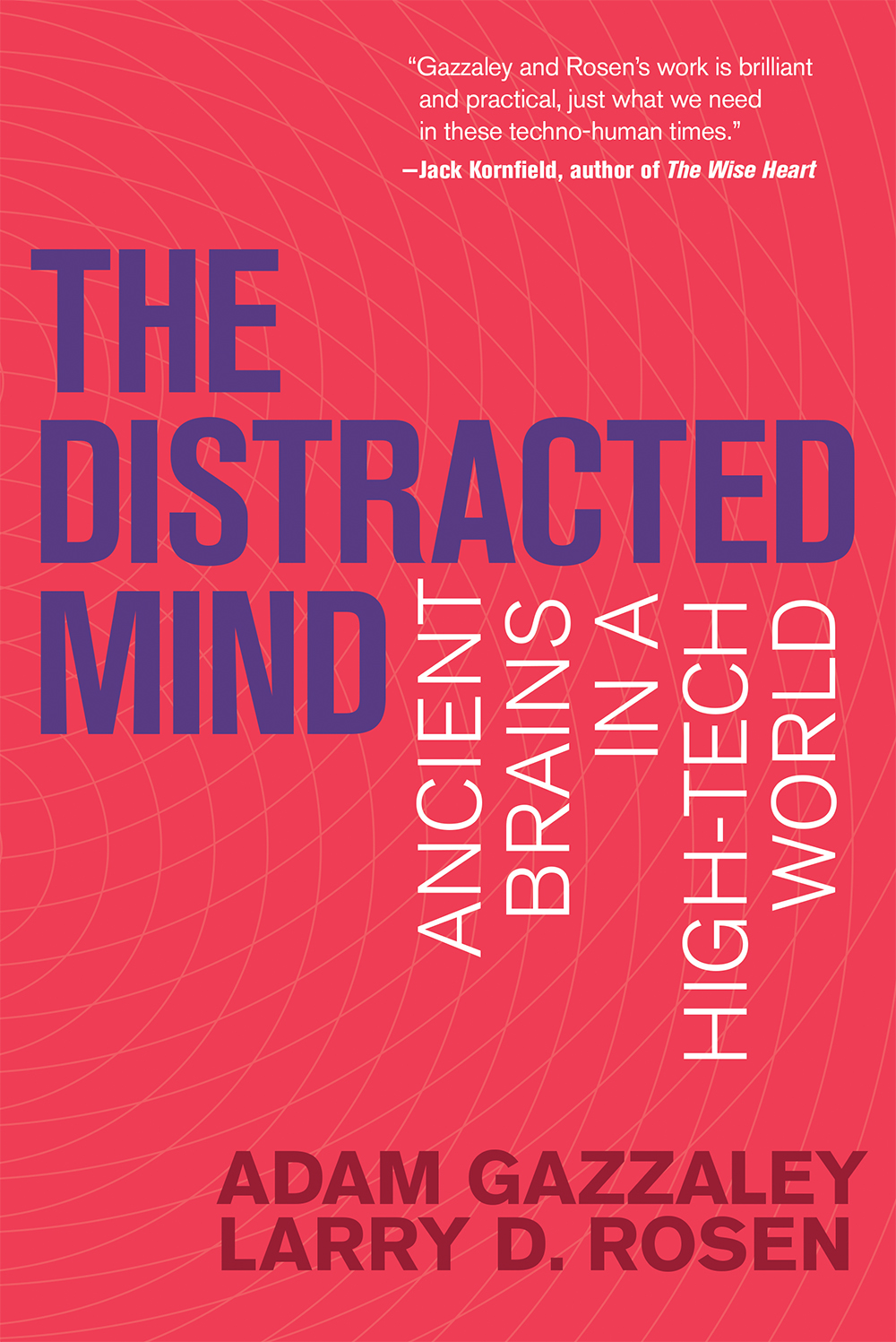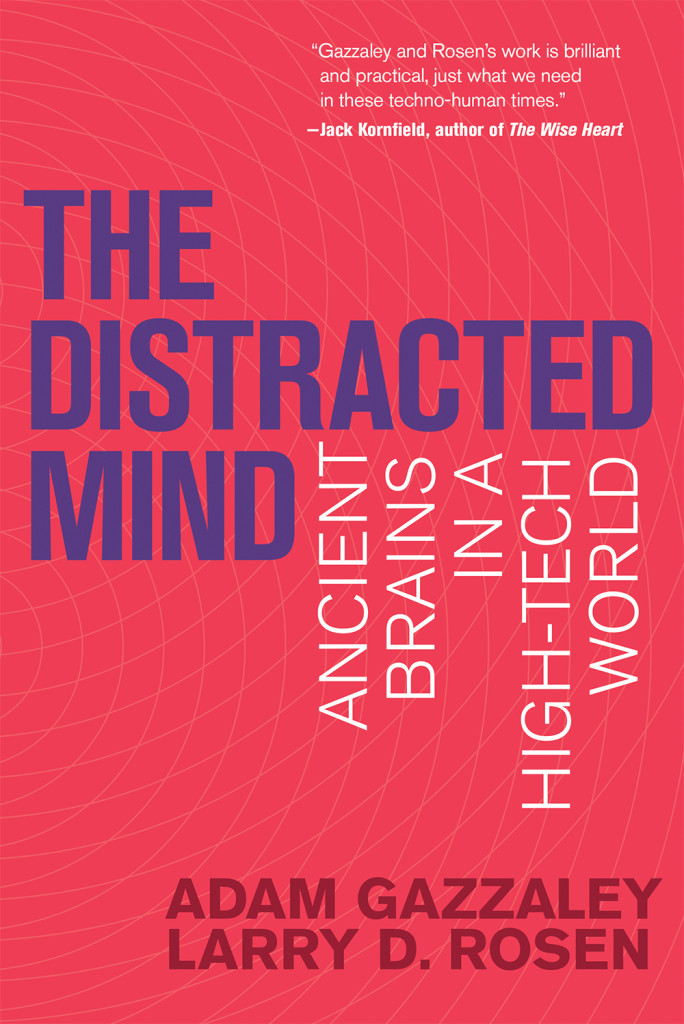
If you have a chance, I highly recommend reading The Distracted Mind — especially if you’ll be attending the upcoming conference.
Authors Adam Gazzaley (a neuroscientist) and Larry D. Rosen (a psychologist) explain our current difficulties with attention by looking at — hold on to your hat — foraging theory. If that sounds crazy, let me explain…
Imagine you’re a squirrel foraging for nuts in a particular tree. How long should you spend in this tree, and when should you head out for a neighboring tree?
The answer depends, in brief, on two variables: the richness of the tree you’re in, and the distance to the next tree. If you’re in a particularly nutty tree, you’re likely to stay longer. If another tree is quite nearby, you’re tempted to make the leap sooner than if it were far away.
Gazzaley and Rosen argue that humans are information foragers. We are a curious bunch, and we constantly want to know more: information relevant to our survival, information about people who are close to us, information topics that pique our interest. (Deflate-gate anyone?)
In this framework, technology distracts us so much because it makes information available to us constantly. The cell phone in your pocket is like an oak tree moving closer and closer to a squirrel.
(Gazzaley and Rosen joke that a text message ping is like a tree throwing a nut at a squirrel to say, “Hey! Come forage over here!”)
They support this argument with several chapters detailing the psychological and neurobiological functions behind our attentional systems; they also map the practical effects that these distractions have on learning and on life.
G&R conclude with two chapters of solutions. While their ideas here aren’t revolutionary, the foraging framework they offer helps clarify how and why each of these strategies might improve our concentration and cognition.
By the way: The Distracted Mind is written with admirable clarity. It doesn’t dumb down the science, and it remains lively, clear, and well-organized.




